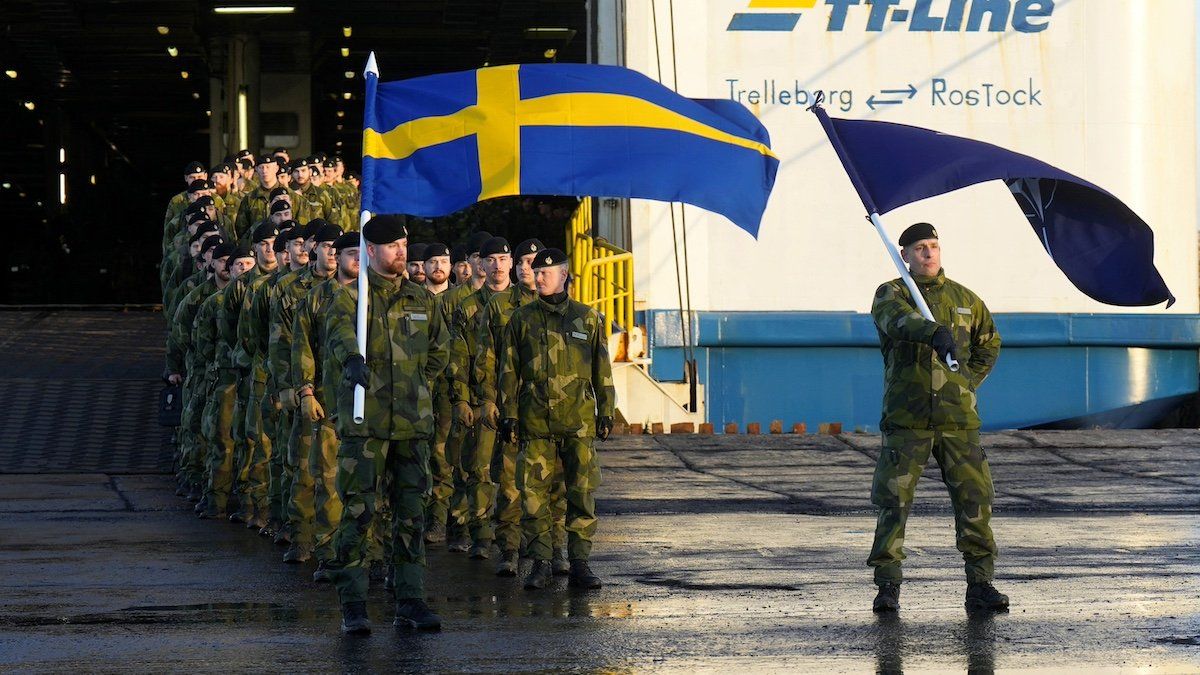Sweden has sent 550 troops to Latvia, its firstmajor deployment since joining NATO in March, which ended its decades-long neutrality.
The Swedishmechanized infantry battalion arrived in Riga on Saturday, escorted by Swedish air force and naval units. Stationed near the town of Adazi, the Swedish forces joined a Canadian-led multinational brigade, part of NATO’s effort to counter the growing threat Russia represents in the region since Moscow’s invasion of Ukraine in 2022.
Why Latvia? The small Baltic nation joined NATO in 2004 as part of a wave of former Soviet republics and satellites including Bulgaria, Estonia, Lithuania, Romania, Slovakia, and Slovenia. Those are now the states on the front line of a potential confrontation with Russia — and Latvia wants to be ready. It is feared that a lightning strike from the East could cross the country in just a few hours if defenders aren’t ready to fight.
Sweden’s armed forces said the mission will ensure stability and “marks Sweden’s largest commitment yet since joining NATO” last year. According toLieutenant Colonel Henrik Rosdahl, “It’s a historic day, but at the same time, it’s our new normal.”